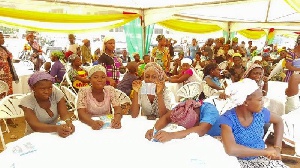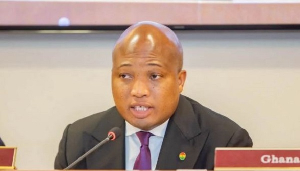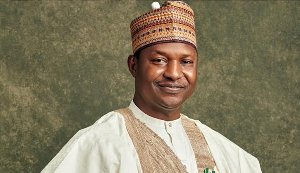As part of better Ghana Agenda, the Government of Ghana promised to roll out programs targeting the poorest of the poor and to assist the vulnerable in society.
In line of this, the Ministry of Gender, Children and Social Protection has registered over 2,000 head potters locally known as Kayayie and 500 elderly people onto the NHIS free of charge at Asokore Mampong in the Ashanti Region.
The Minister for Gender, Children and Social Protection Hon. Nana Oye Lithur in an address during the registration stated that, government believes expanding access to quality healthcare is a basic right and should be seen as critical human resource development.
“A healthy nation they say is a wealthy nation,” said the minister.
According to the Gender Minister, government will therefore ensure that all persons in society have equal access to essential healthcare service, especially the vulnerable.
The minister added that over 1,000 kayayie from Mallam Atta and Agblogbloshie markets in Accra were registed onto the NHIS for free to enable them access basic healthcare service last year.
The minister mentioned that, as part of Social Protection measures, the ministry recognize that women and girls who use the market centers as their home sometimes suffer physical, sexual and emotional abuses and due to these, the ministry in collaboration with UNFPA has established a Response Centers for Survivors of gender based violence in two selected markets in Accra.
The centers are to increase survivor safety and perpetrator accountability. The center according to her will again coordinate and link core services including immediate to long-term healthcare services, access to police, legal and counseling services.
Another program introduced by the government under the ministry is to observe the pre-employment Training skills for Kayayie and other vulnerable groups. The program aims at offering the kayayie with relevant skills training for economic employment. The program will again offer medium and long-term social economic based benefits to enhance the livelihoods of Kayayie and their families.
Regional News of Wednesday, 18 May 2016
Source: Gender Ministry













